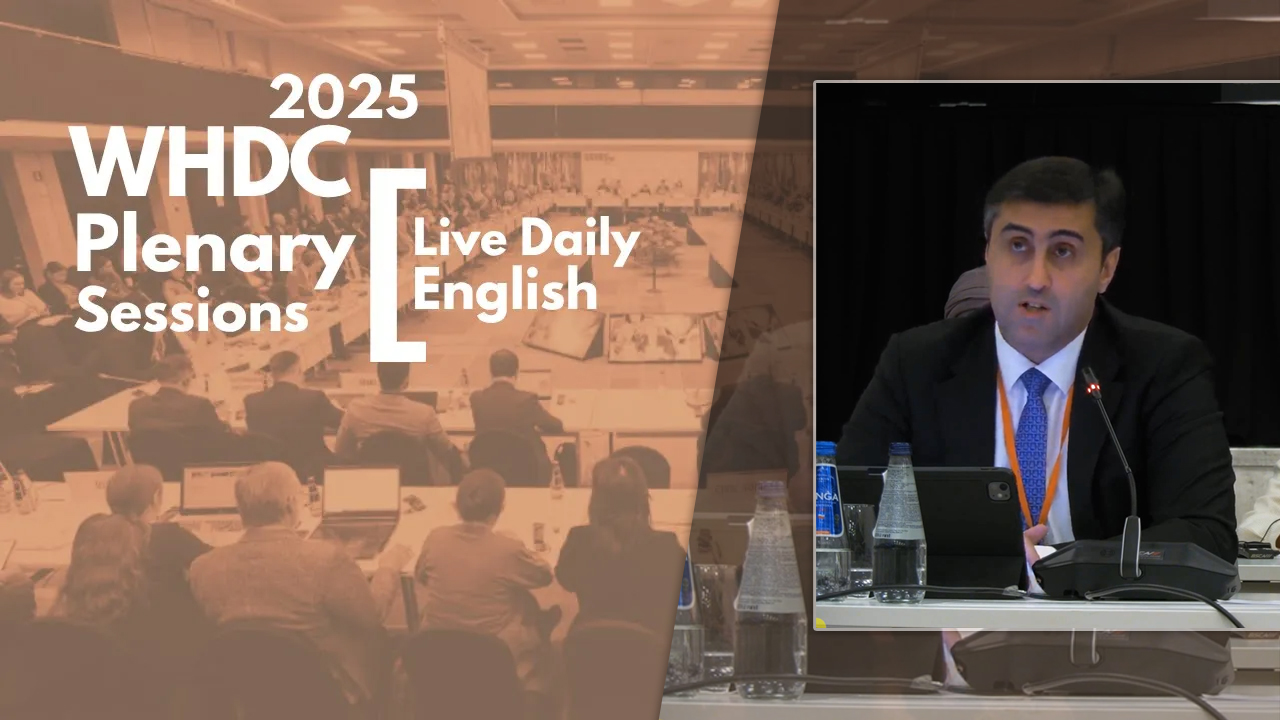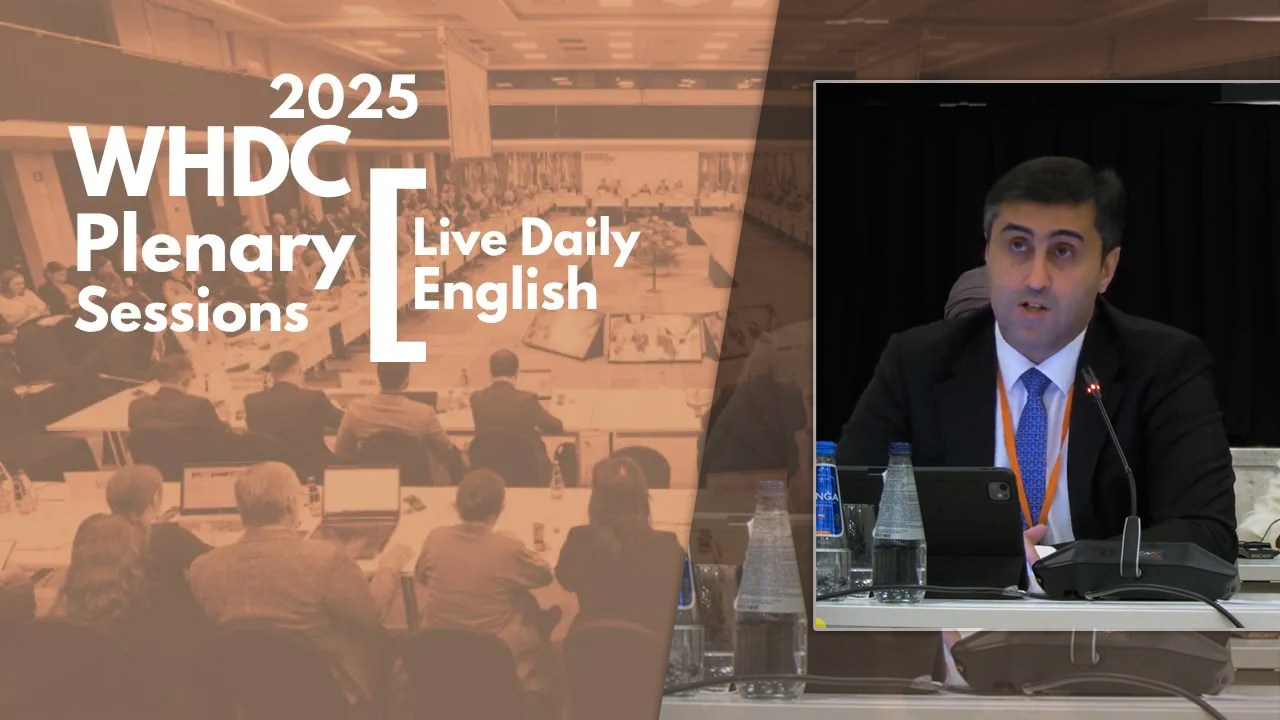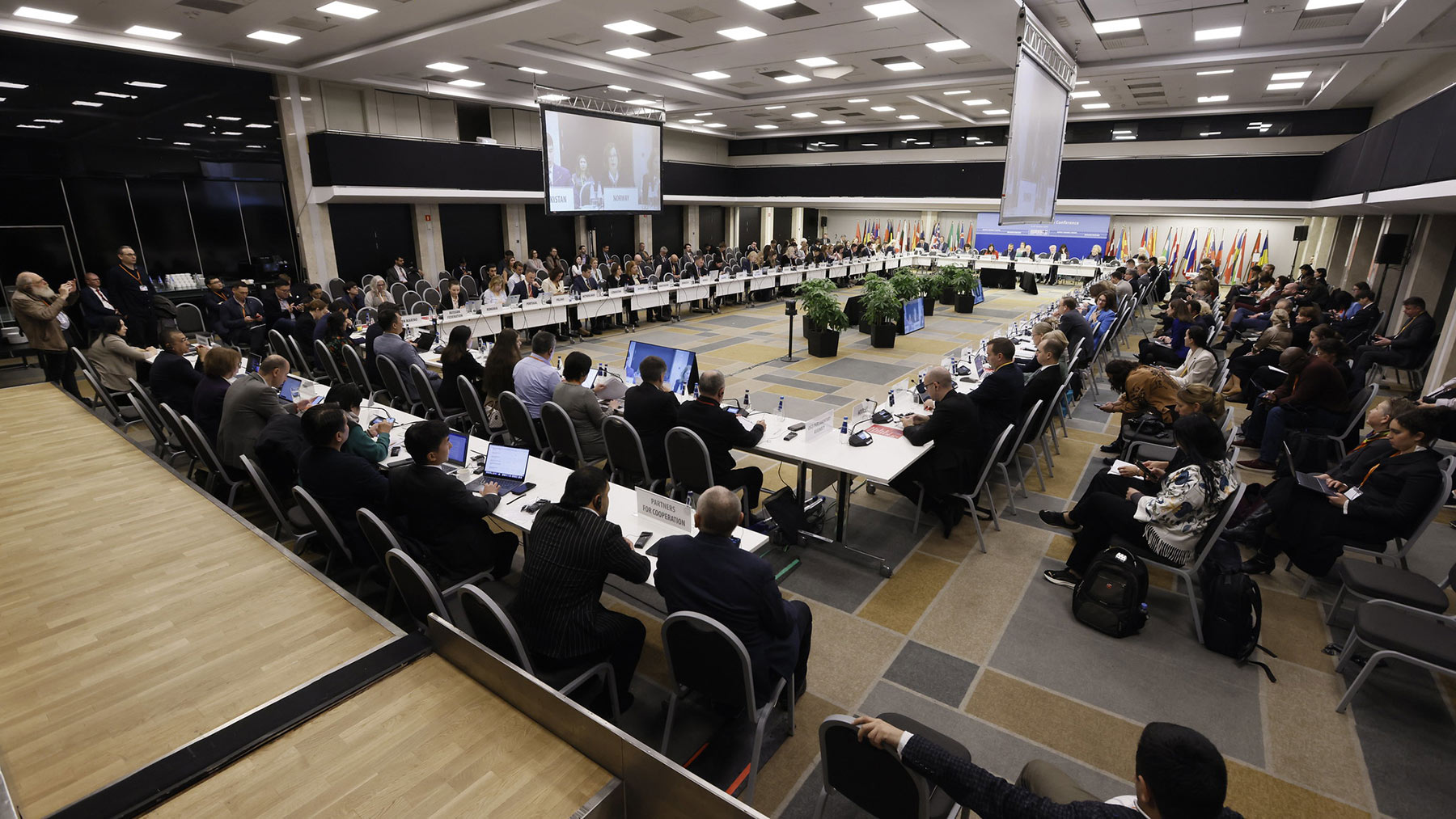Latest events
International conference dedicated to the repressive policy of the Ind...
19/01/2026International conference dedicated to Belgian colonialism was convened...
01/11/2025Baku Initiative Group (BIG) organized an international conference enti...
25/09/2025Towards the Decolonization of Guadeloupe! Challenges and Prospects
25/07/2025Constructing Empires: Colonial Ideologies and Realities
03/06/2025
18/10/2025
Regarding Baku Initiative Group, Executive Director Abbas Abbasov’s participation in the OSCE Human Dimension Conference in Warsaw
The OSCE Human Dimension Conference took place in Warsaw, Poland, from October 6-17. The event convened representatives from all 57 OSCE member states, alongside officials from OSCE institutions and executive structures, representatives of intergovernmental organizations, and civil society representatives. Executive Director of the Baku Initiative Group (BIG) Abbas Abbasov delivered a speech at three plenary sessions of the conference, focusing on critical global issues including racism, xenophobia, discrimination, religious intolerance, human trafficking, and fundamental freedoms. In his address, Abbas Abbasov expressed concern that several nations persist in perpetuating colonial and neocolonial policies, highlighting the severe consequences of those practices by referencing specific real-world examples to grab the attention of the audiance.
In this context, he highlighted the atrocities committed by Belgium in Africa, citing the Congo as a particularly egregious case of exploitation and human suffering. He described the failure of the international community to adequately address and evaluate the crimes against humanity committed in Africa as a profound injustice. Furthermore, Mr. Abbasov emphasized that Belgium’s colonial rule in the Congo suppressed indigenous religions and enforced foreign cultural norms, leading to enduring cultural and spiritual traumas that continue to impact the region today.
Abbas Abbasov further highlighted that in France’s overseas territories, including Kanaky-New Caledonia, Guadeloupe, Martinique, and Mayotte, indigenous populations continue to experience marginalization, relegated to second-class citizen status. The people of African descent in the Caribbean are systematically excluded from decision-making processes and deprived of equal economic opportunities in Guadeloupe and Martinique, he underscored. In Mayotte, the predominantly Muslim population faces deliberate policies of isolation, with the island effectively transformed into a militarized fortress. In French Guiana and Réunion, economic dependency, unemployment, and environmental crises have driven local populations into forced migration and rendered them vulnerable to human trafficking networks. In these territories, human trafficking represents a contemporary extension of colonial enslavement, Mr. Abbasov concluded.



